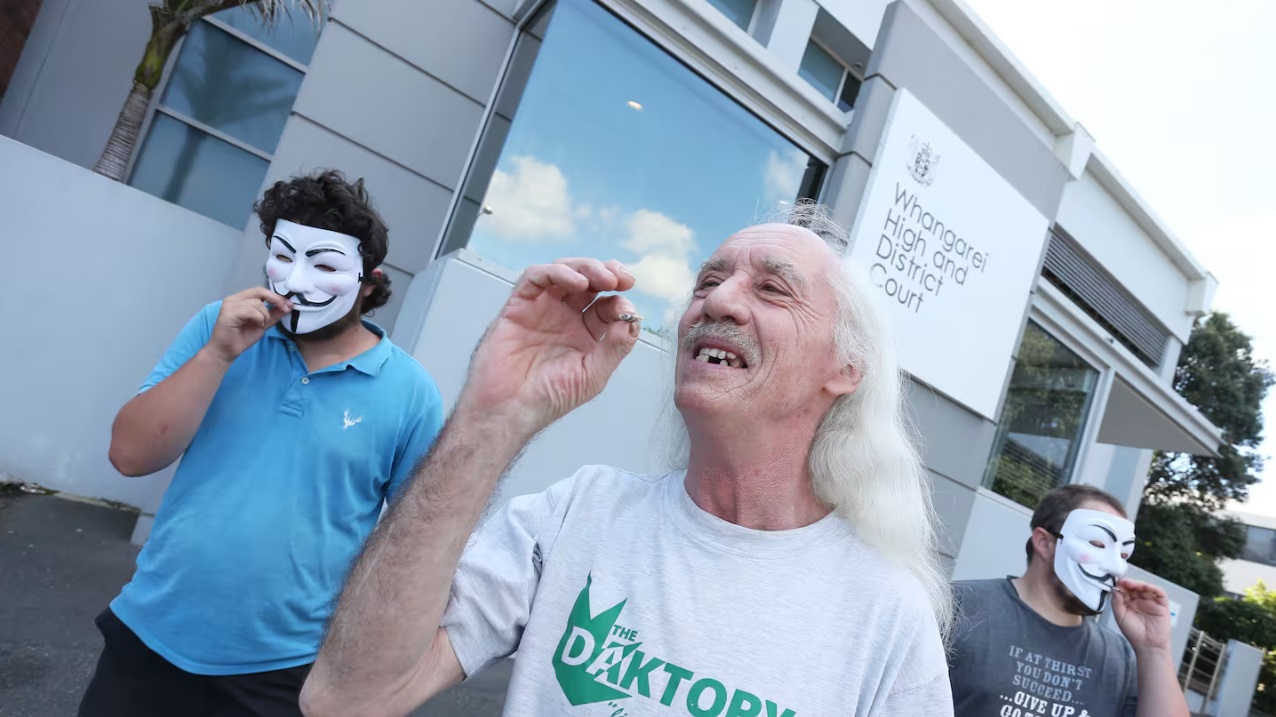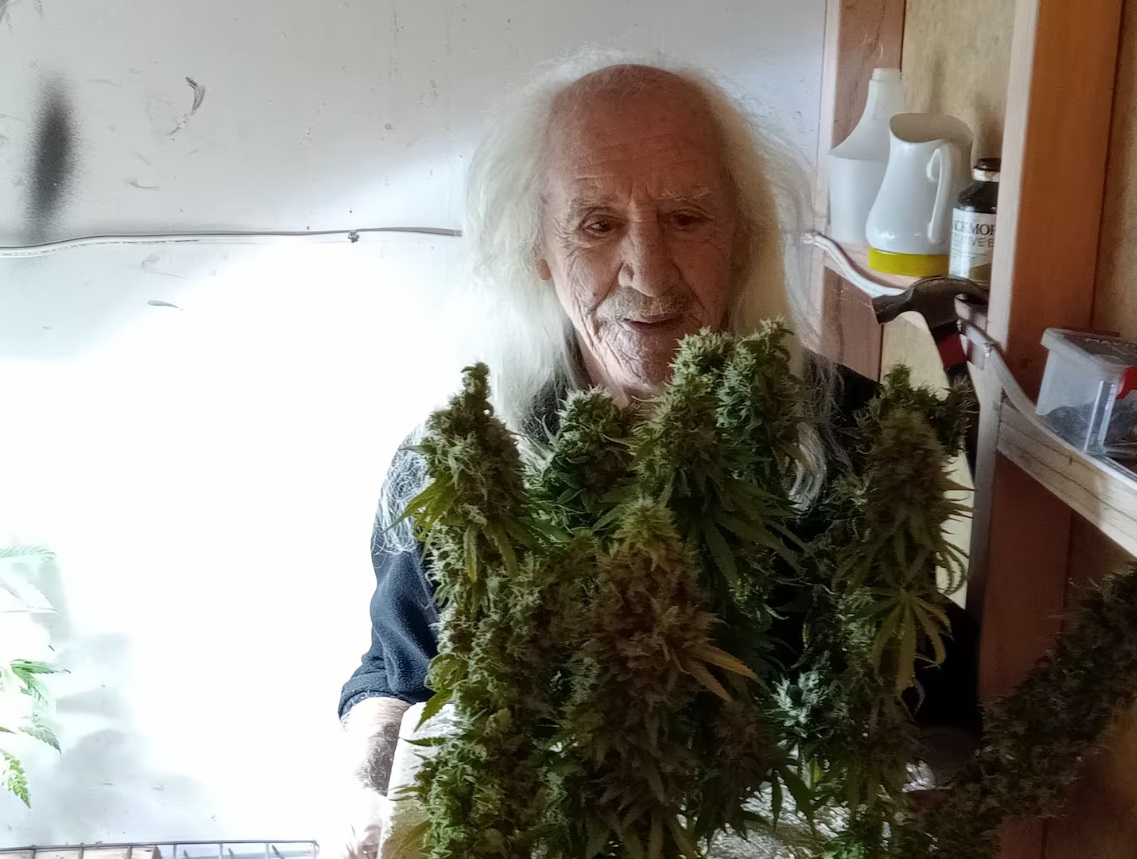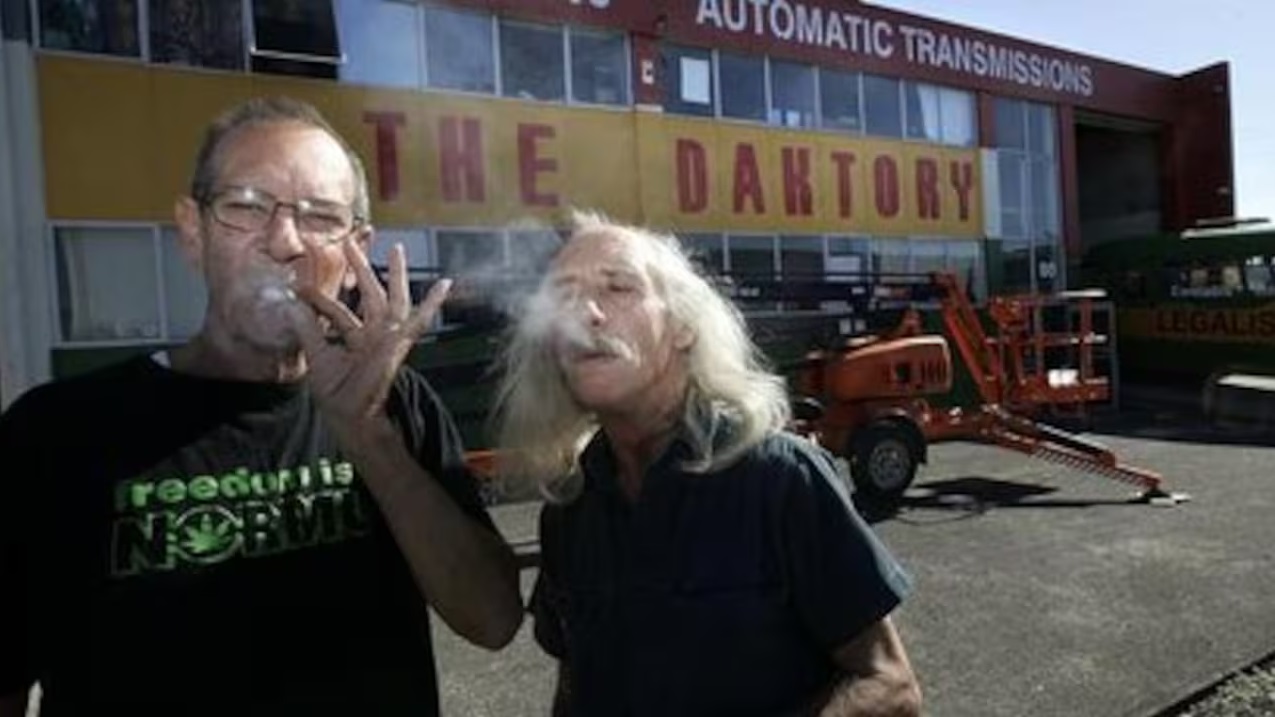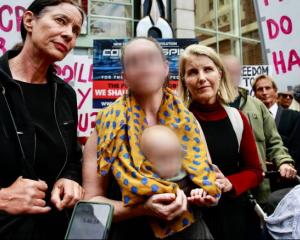
"You have no choice but to find me guilty," he asserted, arguing that his case centred on the ethics of growing one’s own marijuana.
The jury concurred, returning a guilty verdict within 11 minutes.

Borland is no stranger to the courts, having been involved in the now-dissolved Daktory Social Smoking Clubs in New Lynn and Whangārei in the late 2000s.
In November 2022, police attempted to pull over a car in Dargaville when the driver pulled into a property in Bassett St.
When Senior Constable Wendy McDermott got out of her car to question the driver, she noticed Borland darting around the property, moving things behind the garage.
McDermott found eight cannabis plants in early germination and, when she asked Borland whose they were, he responded, "Mine."
"Why are you growing cannabis?" she asked.
"Because it’s too expensive to buy and there’s no reason in the world people shouldn’t be able to use cannabis," Borland responded.
He told McDermott: "I will continue to grow and consume cannabis no matter what."
He was charged in connection with the 45 plants found at the site.
In January 2023, he set up a company named Roaring Lion Canna Enterprises, with himself as the sole director, alongside a Facebook page that began actively advertising the sale of cannabis and cannabis seeds.
A year after the Dargaville bust, and following an anonymous tipoff, police searched his latest residence in Totara North, where they found 52 plants and more than 600 grams of cannabis in various locations.
He was charged again, pleaded not guilty and represented himself at a jury trial before Judge Philip Rzepecky and a jury of 10 women and two men.

An evidential interview was played in court in which Borland admitted his established trading on Facebook, claiming it was for clients with medicinal needs.
Borland said he had been in the cannabis trade for almost 50 years, had spent almost seven years in prison and had been before the courts 10 times for cannabis-related offending.
He told Renata in the interview that he had set up a legitimate cannabis trading business in which he intended to pay GST and taxes and was growing a stockpile to sell.
He said he could not estimate the financial yield of the crop, noting that returns had declined significantly because of an abundance of cannabis on the local market.
"The whole cycle takes four months before anything is harvested and the crop isn’t worth anything until it reaches the stage of four months. That’s the only time cannabis has any value at all, this [the plants] have got no monetary value whatsoever," Borland told the detective.
Crown lawyer Pablo Hambler told the jury in closing that there was no question the elements of the offending had been met.
"You may be sympathetic towards his position but this is not a case of what the law should be or what Borland might like it to be. The law of cultivating and selling it to other people is illegal."
Borland used his closing statements to explain that he had no choice but to plead not guilty, to allow him to express his opposition to cannabis laws.
"Not all our laws are fair and the judiciary has a moral and ethical obligation to ensure the laws they administer are fair and just. Cannabis laws are not fair and all they are doing are protecting medical companies that sell an inferior product," he told the jury.

"Everyone should have the right to grow their own cannabis if they wish.
"I don’t know what else you can do but find me guilty but the laws need to be changed and why I took these actions was simply to defy the law."
The jury returned in 11 minutes with a guilty verdict and, as sentencing options were discussed, he told the judge he had one request.
"It’s jail or nothing."
Judge Rzepecky responded: "I realise you’re making a moral stand but you’re not a young man – you’re even older than me – and it’s not easy to go to prison. It seems to be a waste of a life but it’s entirely up to you, you seem to be making a martyr of yourself."
"I just have to do what I have to do," Borland said.
"Okay, well, as you see it," Judge Rzpecky said.
Borland will be sentenced at a later date.
By Shannon Pitman









